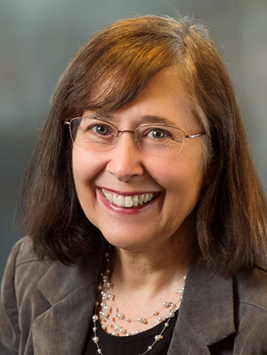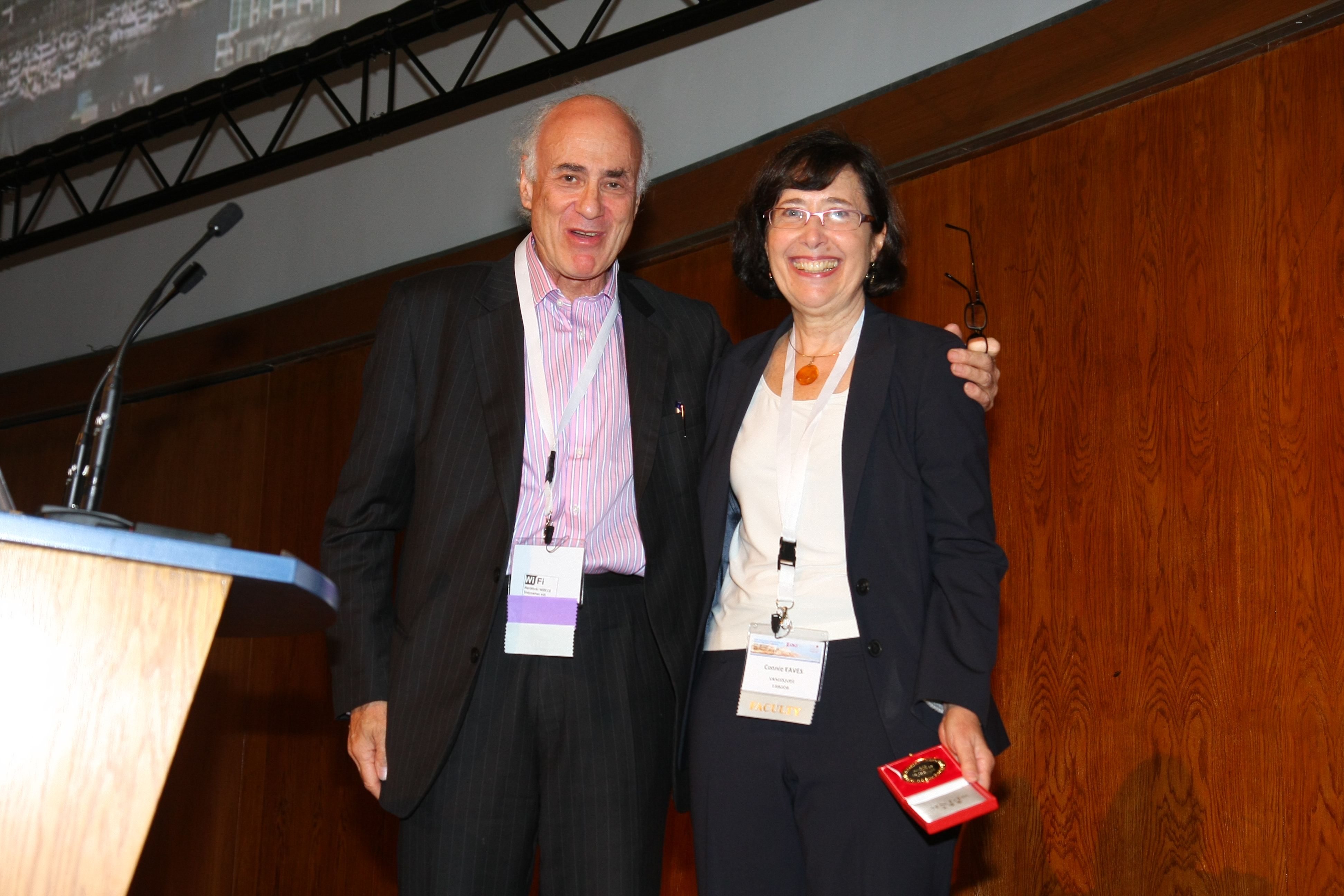 March 2024 - With sadness we share the news of the death of Connie Eaves, a great friend, mentor and inspiration to those in the CML community.
March 2024 - With sadness we share the news of the death of Connie Eaves, a great friend, mentor and inspiration to those in the CML community.
‘‘Science is like an art in that it’s your performance that matters. If you produce a good song today it’s not necessarily going to last forever. This is, in part, what attracts people into science; it is that very insecurity that provides the drive to keep creating something new.”2 Connie Eaves
Dr Connie Eaves made major contributions to the understanding of leukemia and breast cancer biology. Her pioneering research, including the identification of quiescent cancer stem cells, revolutionised cancer treatments and research methodologies worldwide.
Professor Eaves’ areas of major contribution to the field of CML include:
- defining erythroid abnormalities in CML & MPN
- cell cycle dysregulation in CML
- development of human haematopoietic stem cells quantification assays (Long-term culture initiating cells and competitive repopulating units)
- development, refinement and clinical application of long term cultures for “purging” ex-vivo CML autografts
- expansion of human haematopoietic stem cells
- identification of quiescent stem cells in CML
- identification and development of quantification assays of breast stem and progenitor populations
- development of ‘STEMCELL Technologies Inc.’
 ‘‘Connie was a terrific colleague. A great person, a fantastic mentor that help develop many of our current leaders in CML research, and a fantastic researcher that set the ground to much of our current knowledge in CML, particularly as it relates to the biology of the leukemic stem cells. Her recognition as an iCMLf Rowley Prize winner in 2013 is testament to her many contributions and to the respect and admiration of all of us in the CML world. She will be sorely missed.”
‘‘Connie was a terrific colleague. A great person, a fantastic mentor that help develop many of our current leaders in CML research, and a fantastic researcher that set the ground to much of our current knowledge in CML, particularly as it relates to the biology of the leukemic stem cells. Her recognition as an iCMLf Rowley Prize winner in 2013 is testament to her many contributions and to the respect and admiration of all of us in the CML world. She will be sorely missed.”
Professor Jorge Cortes, Augusta, USA, Chair of the International CML Foundation
After she received her PhD in immunology from the university on Manchester under the direction of Professor Tim Dexter, Dr Eaves did postdoctoral work on hematopoiesis at the Ontario Cancer Institute in Toronto as a member of the research team of James Till and Ernest McCulloch. Dr Eaves then worked as an Associate Professor at the university of British Colombia, as a Professor of Medical Genetics and as Deputy Director and Director at Terry Fox Laboratory where she continued to work as a distinguished scientist. Her main interests were in normal and leukemic stem cells, normal and malignant breast stem cells and the derivation of hemopoietic cells from human embryonic and induced pluripotent stem cells.
Dr Eaves received numerous scholarships and awards, including election as a Fellow of the Royal Society of Canada, receipt of the NCI (Canada) Robert L. Noble Prize for Excellence in Cancer Research, the American Society of Hematology Henry Stratton Medal for Lifetime Achievement and the 2013 Rowley Prize of the International CML Foundation. During her PhD studies in the late 1960’s, she discovered that two cell populations contribute to the generation of antibody responses, heralding the subsequent recognition of B and T cells. She contributed many seminal advances to our understanding of progenitors and stem cells involved in blood formation and their regulation in both normal and perturbed states, with a particular emphasis on chronic myeloid leukaemia. Dr Eaves also became an expert in breast stem cells and has worked with human embryonic stem cells. She has published more than 500 papers and until recently continued to direct a dynamic research group. She is a major protagonist of excellence in training, having personally supervised over 100 graduate students and postdoctoral trainees, many of whom are now in senior research leadership positions around the world. She has also served in many senior leadership positions (including President of the International Society for Experimental Hematology, President of the former National Cancer Institute of Canada, Vice-President of Research at the BC Cancer Agency and Board of Genome Canada), and she was active in promoting and advising several collaborative translational and interdisciplinary research programs and networks1.
“The biggest accomplishment has and remains inspiring a large cadre of excellent trainees with the confidence that they can go on to make major contributions to humanity through their continued pursuit of scientific research in a variety of settings”. Connie Eaves
“The passing of Professor Connie Eaves is an incredible loss for the field of haematology and the field of CML, and for all her post-docs and students she mentored worldwide. Connie was particularly attracted by our country where she spent two years in her teenagerhood with her parents and recruited so many French post-docs in her laboratory along her career. As all her past-students we all feel like orphans having lost their ancestral mentor and a member of our close family. Indeed, Connie Eaves was more than an outstanding researcher but also a close, gentle, and humanist person to all. She has imprinted her mark not only in the history of stem cells, but also in our hearts.”
Professor Franck Nicolini, Lyon, France, Chair for the French group of CML.
References
1) https://www.eurostemcell.org/about-eurostemcell
2) https://stemcellsjournals.onlinelibrary.wiley.com/doi/pdf/10.1002/stem.196
Other obituaries for Connie Eaves
- Leukemia, May 2024 (Gale RP and Hochhaus A)
- Bulletin du Cancer, May 2024 (Audet J et al.) - in French










